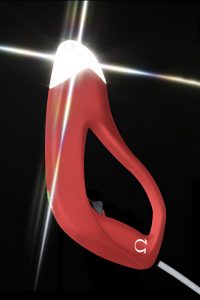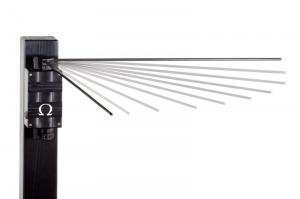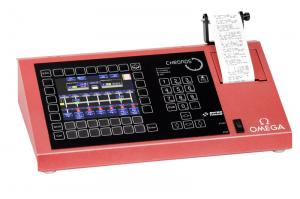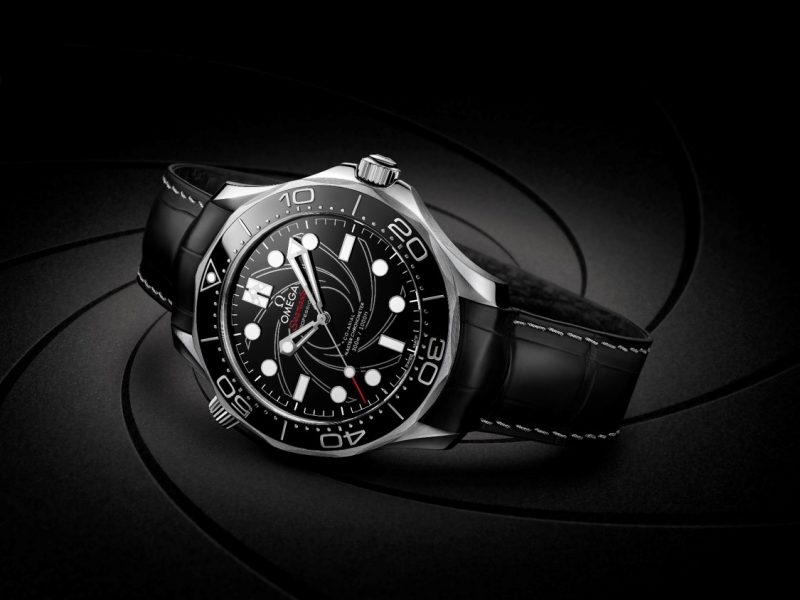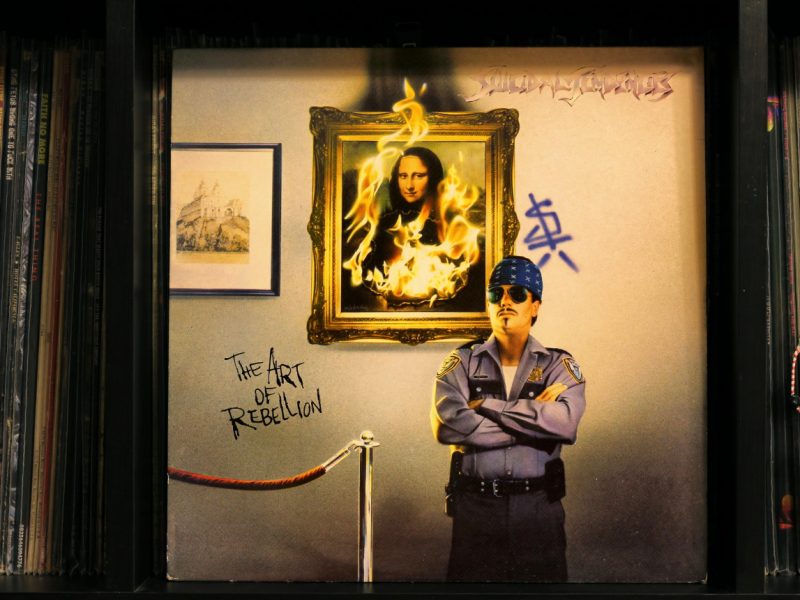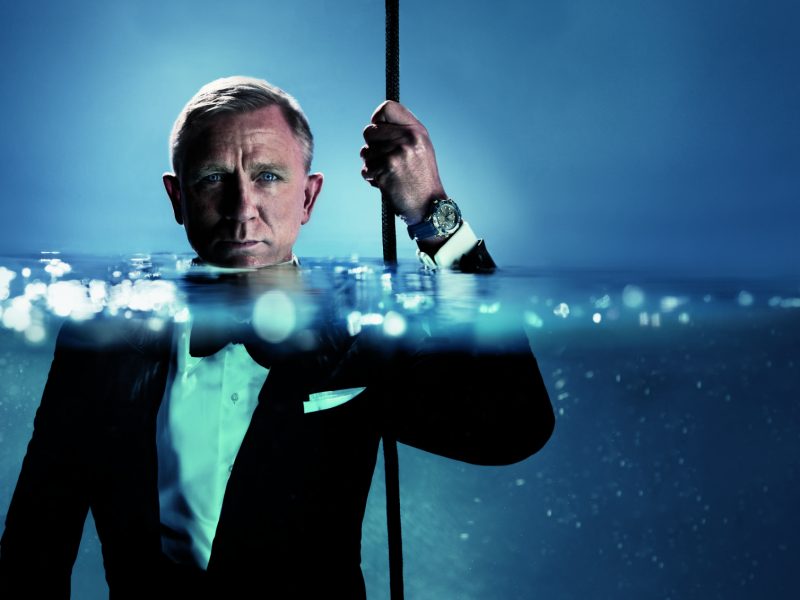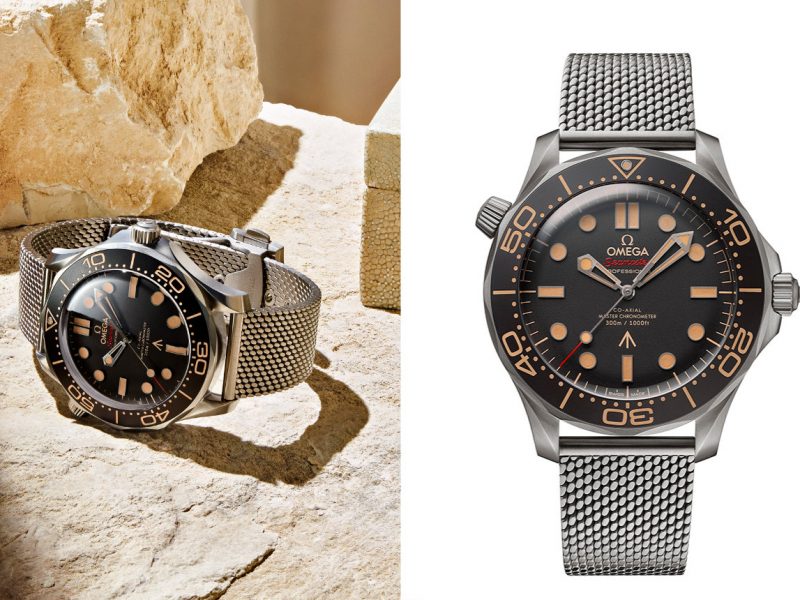New Olympic Games Timekeeping Technology in Vancouver and Whistler
At every Olympic Games, OMEGA’s timekeeping and data handling professionals arrive equipped with tons of equipment – a veritable arsenal of the world’s latest and best sports timing and judging technology. Every Olympic Games features some technological premieres. Here’s a preview of the equipment which will have its Olympic Games debut in Vancouver and Whistler:
Electronic Start System
The most logical place to begin is with OMEGA’s new Electronic Start System. One of the most enduring images from any Olympic Games is the starting pistol, reminiscent of the revolvers so popular in movies set in the Old West. At this year’s Olympic and Paralympic Winter Games, this has been replaced by a streamlined, futuristic device composed of a flash gun and a sound generation box.
When the starter presses its trigger, three things happen simultaneously: a sound is “played”, a light flash is emitted and a start pulse is given to the timing device. By pressing the trigger a second time within two seconds, the false start will be audibly signaled. The sounds can be changed and downloaded by computer.
As was the case with traditional powder pistols, the sound will be reproduced by speakers near each competitor, guaranteeing that they will hear the signal at the same time. At some venues, the audio signals will also be put on the public address system.
The Snowgate starting gate
Alpine skiers at this Olympic Games will start their runs through a new starting gate called “Snowgate” for the first time. New technology ensures that the starting pulse is generated when the “wand” (or “bar”) is at precisely the same angle for every competitor. The control box for the device includes both a main and a backup system. The systems use different technologies – one is purely mechanical; the other is electro-mechanical. The skiers have a ten-second starting window and can begin up to five seconds before or five seconds after the official start time. If they are within this time frame, the timing system will be activated automatically when they burst through the gate; otherwise, they are disqualified.
High-definition judges’ scoring system
In figure skating, OMEGA Timing’s high definition judges’ scoring system will be in place. It has been tested at international competitions in Leipzig and Liberec and was sanctioned by the International Skating Union (ISU) in 2008 for its events. It has been in use since the beginning of 2009 for ISU Championships and will make its first Olympic Games appearance in Vancouver.
The system provides several additional advantages: there will be a tremendous increase in quality thanks to the high-definition images. It also weighs considerably less than its predecessor and offers improved handling.
Furthermore, OMEGA’s timekeepers can provide all the necessary support in the operation of the system and will no longer have to rely on third parties.
The OMEGA Universal Tracking System
In the cross-country skiing events in Vancouver, OMEGA will use the OMEGA Universal Tracking System based on global positioning system (GPS) technology to track the locations of the athletes throughout the race. A similar system was used with great effect at the Beijing 2008 Olympic Games in the road cycling and triathlon events. This will allow the timekeepers to measure the distances between the skiers at any time during their races. Furthermore, it will be possible to display their positions using three-dimensional animation with a visual virtual track based on satellite data. A prototype of the system was used during the 2008/2009 International Ski Tour but the Games in Vancouver and Whistler will mark its debut at an Olympic Games.
Transponders in Ski Cross and Snowboard Cross
At the Vancouver 2010 Olympic Winter Games, there will be one new discipline, ski cross. For this freestyle skiing event, transponders will be used allowing intermediate standings to be displayed while the race is taking place. Transponders will also be used for men’s and ladies’ snowboard cross.
The Chronos Timer in Alpine Skiing
The alpine skiing events in Vancouver will also mark the Olympic Games debut of the Chronos Timer. This OMEGA Timing product has seen service as a backup in technical competitions (giant slalom and slalom) in Adelboden, Switzerland and was used as the main timing device for the training and two downhill runs of the European Cup in Wengen. Its next “centre-stage” appearance will be at the Vancouver 2010 Olympic Winter Games.
OMEGA and Olympic Games timekeeping technology
OMEGA first served as Official Olympic Games Timekeeper at the Games in Los Angeles in 1932. At the Vancouver 2010 Olympic Winter Games OMEGA will assume the responsibility for the 24th time. OMEGA and the IOC have signed a contract which extends through 2020. For more than three quarters of a century OMEGA’s timekeeping and data handling efforts have been matched by the brand’s dedication to the improvement of timekeeping technology.
At each Olympic Games, OMEGA is proud to be at the service of remarkable athletes from around the globe. The company strives to ensure that their sporting performances are evaluated by uncompromisingly cutting-edge equipment and the world’s finest timekeepers.
Source: www.omega.ch


